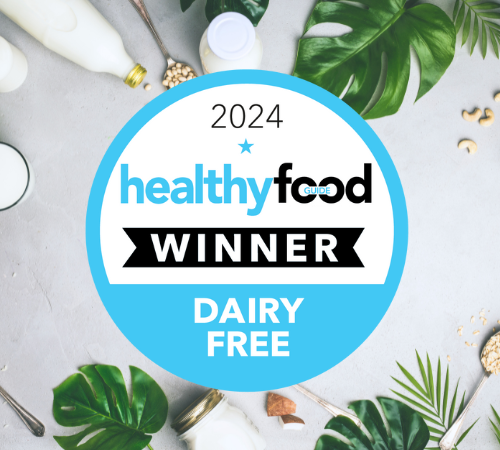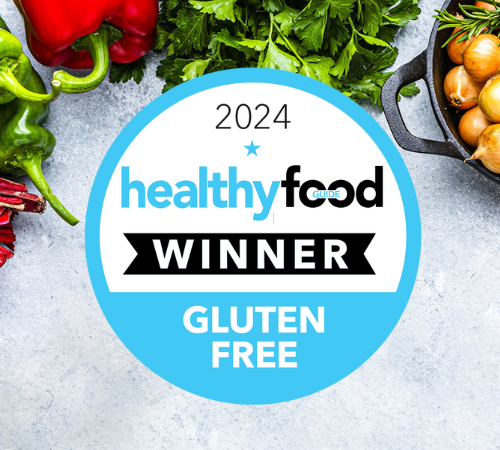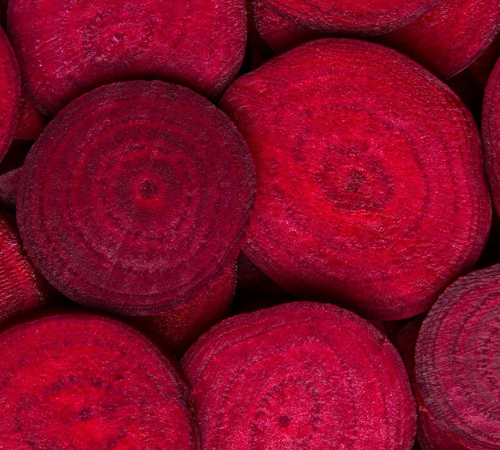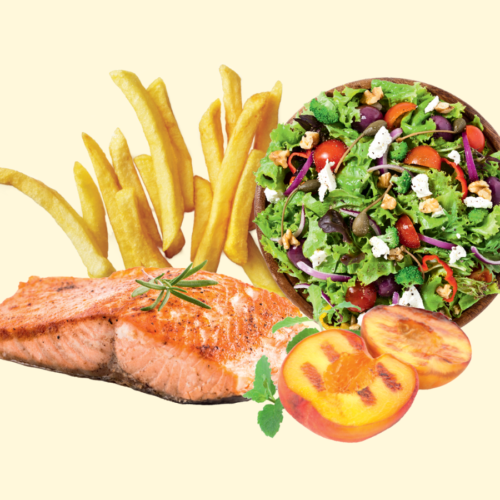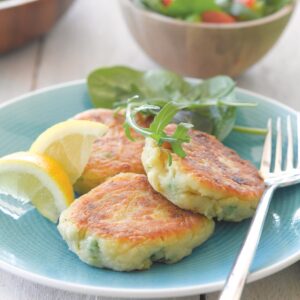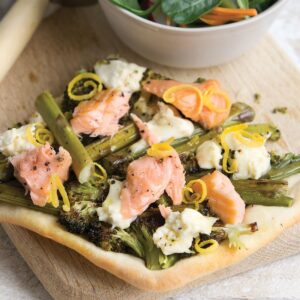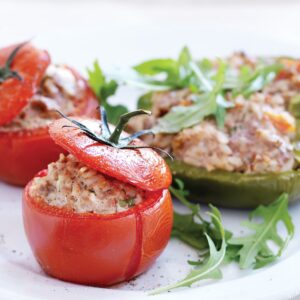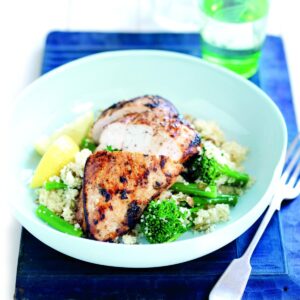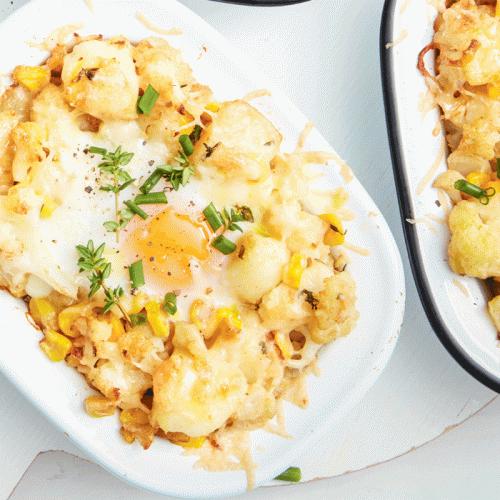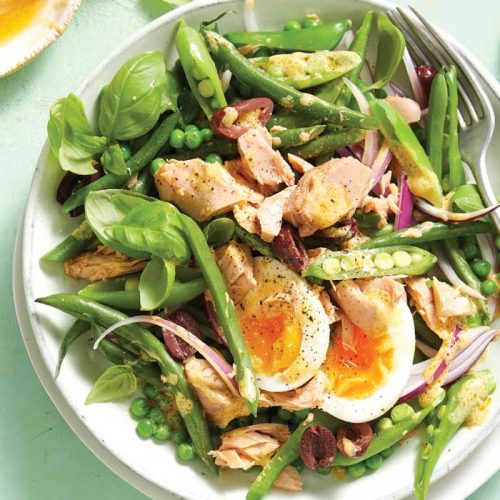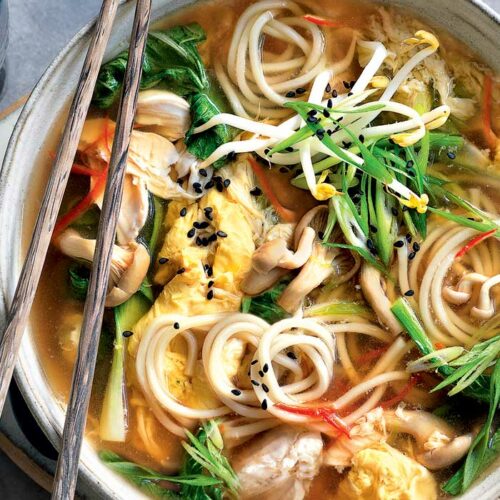
Use this smart guide to sidestep added sugar in your weekly supermarket shop.
Groceries
Cooking sauces
Although often targeted for their high sugar content, a lot of this is the natural type in tomatoes, veg or pineapple. Check the ingredients list, though – the higher up sugar appears, the higher the added sugar will be.
Be sugar smart: Swap ready-made tomato sauces for passata that’s free from added sugar.
Canned veg and pulses
These make an important contribution to our five-a-day and are rich in fibre. Beans, lentils and chickpeas are also a good source of iron for people on a vegetarian diet.
Be sugar smart: Choose pulses without added sugar and reduced-sugar baked beans.
Table sauces
Ketchup, pickles, brown sauce and salad dressings contain varying amounts of sugar (1tbsp ketchup contains 1tsp sugar). They don’t provide nutrients and are usually high in salt, too.
Be sugar smart: Choose reduced-sugar versions. Boost flavour in meals with pepper, herbs and spices.
Breakfast cereals
These only contribute 5 per cent of the added sugar in our diets (8 per cent in under-11s), although some are high in sugar, so check labels. Watch muesli and granolas that contain honey or syrups. Don’t worry about the natural sugars that come from dried fruit such as dates, raisins or sultanas.
Be sugar smart: A 30g bowl of chocolate cereal or a 50g serving of crunchy muesli can contain 3tsp sugar. Swap them for porridge (but watch the ready-to-go pots, which have added sugar). Opt for fibre-rich wholegrain cereals and those with the least sugar.
Jams, preserves and honey
Jam, marmalade, honey, maple syrup, agave syrup, coconut syrup, treacle…They’re all in the same category as the white stuff, so should be limited; 1tbsp honey has the equivalent of 4tsp sugar.
Be sugar smart: Choose reduced-sugar versions of jam and marmalade, or swap for no added sugar and salt nut butters.
Chiller
Yogurts
These vary widely in sugar content and nutrition labelling doesn’t help us identify how much sugar is added and how much is naturally occurring. In plain varieties, it’s all from naturally-occurring lactose, but most fruit yogurts contain added sugar, too (‘diet’ and ‘fat-free’ types may include a sweetener).
Be sugar smart: Serving plain yogurt with fresh fruit is the only way to guarantee no added sugar, but don’t let the sugar content put you or your children off enjoying fruit yogurts – just look for lower-sugar options. All yogurts are packed with nutrients, including bone-building calcium, and usually make a dessert that’s lower in calories and fat.
Potato products
Frozen or chilled chips, mash, roast and jacket potatoes tend to be free from added sugar, although if they have a batter or other coating, they may contain small amounts of dextrose, which is a type of sugar.
Be sugar smart: Choose lower-fat varieties without a coating.
Pizzas and ready meals
Much of the sugar in these may be naturally occurring, from tomato sauces, veg and fruit such as pineapple. Ingredients lists can reveal some added sugar, though: for example, in pizza dough or sauces, or in processed meats such as pepperoni, ham and chicken. Burgers, sausages and breaded or battered products may also contain small amounts of sugar.
Be sugar smart: Look for products that get a green traffic light for sugars.
Coleslaw, potato salad and dips
They contain some natural sugars from veg and soured cream, but anything with mayo includes added sugar. The main concern here should be their high calorie and fat count.
Be sugar smart: Check ingredients lists or, better still, make your own.
Baked goods and snacks
Bread, wraps and rolls
There’s around ¼–½tsp sugar in a slice of bread (to help activate the yeast and provide colour).
Be sugar smart: Don’t worry too much about sugar in bread, but go for high fibre and watch what you put on it – use reduced-sugar jam, etc.
Fruit loaves, teacakes and scones
Amounts of sugar vary, but some of it is natural, from the dried fruit.
They tend to be lower in fat and calories than cakes, so make a better occasional snack.
Be sugar smart: Swap a teacake (up to 5tsp) for a slice of fruit loaf, which has 1½tsp sugar.
Cakes and pastries
Donuts, sponges, éclairs, etc are loaded with sugar and should be an occasional treat.
Be sugar smart: Coffee-shop cakes and pastries can be very high in sugar, so check for nutrition information in the shop or online before you go. For example, a blueberry muffin can contain 6½tsp sugar – that’s almost all your recommended daily maximum.
Custard and rice pudding
While they provide protein, vitamins, minerals and some natural sugars from the milk, sugar is added, too. They’re often lower in fat and calories than other puds, though.
Be sugar smart: Serve custard with stewed apple rather than sponge pudding, and rice pudding with banana, not jam.
Confectionery and biscuits
These are full of sugar, often high in fat and offer virtually no nutrients. Rule of thumb: the plainer the bickie, the lower the sugar.
Be sugar smart: Swap that chocolate Hobnob (1½tsp) for a Rich Tea biscuit (½tsp sugar).
Cereal bars and energy balls
Check for honey, fruit concentrates and those healthy-sounding syrups, such as agave, date and coconut, which are just as bad as sugar.
Be sugar smart: A 50g health bar can have 4tsp sugar (some natural). Find lower-sugar energy balls to make like these vegan carrot cake bliss balls.
Drinks
Soft drinks
Whether fizzy or still, they contain added sugars so need to be limited – or avoided. A can of cola has 9tsp added sugar.
Be sugar smart: Always choose diet versions.
Fruit juice
New health guidelines put fruit juice in the same category as sugars, honey and syrups because the natural sugars in it damage teeth: 150ml orange juice has 3¼tsp sugar. Plus juice doesn’t fill us up as it lacks the fibre of whole fruit.
Be sugar smart: Have no more than 150ml pure fruit juice in a day or, better still, opt for water.
Hot drinks
A simple brew of tea or coffee with water and milk is free from added sugar. But sugar is usually added to instant sachets of latte, cappuccino and mocha. Powdered chocolate drinks also contain lots of sugar (it’s often the main ingredient) – even low-calorie ones.
Be sugar smart: Cocoa is sugar free – mix with hot milk and sweeten to taste with calorie-free sweetener to make a less sugary hot chocolate.
Smoothies and milkshakes
A 250ml smoothie bottle has 7¼tsp sugar – if it’s 100 per cent whole fruit, you don’t need to worry, but if it’s mixed with juice, the juice counts as the sugar type you need to cut down on. Milkshakes contain natural sugars from milk in the form of lactose – but they usually have added sugar, too. This may be labelled as glucose or fructose. Be sugar smart: As with juice, you should stick to a 150ml smoothie serving. Even if you drink more, it will still only count as one portion of your five-a-day. Shame they tend to come in a 250ml bottle!
Alcohol
Lager, cider and beer count for a significant amount of the sugar in an adult’s diet (8 per cent), with wine providing smaller quantities. A pint of dry cider has 3¾tsp sugar; a 175ml glass medium white wine has 1¼tsp.
Be sugar smart: As well as hitting the high notes for sugar, alcohol also stacks up the calories, so limit your intake.
Greenlight for sugar
Fill up on these staples, all free from added sugar:
- Eggs
- Meat
- Fish
- Chicken
- Soy
- Nuts and seeds
- Plain pasta
- Rice and grains
- Milk and cheese: Dairy contains lactose, a naturally occurring sugar that doesn’t need to be limited. Choose low-fat varieties, though
- Fruit and veg: The sugar they contain is naturally occurring so it’s not a cause for concern.
At Healthy Food Guide, we only collaborate with trusted brands. To bring you this article we have partnered with Jordans Low Sugar Granola, for more information about their products visit jordanscereals.com.au
www.healthyfood.com



